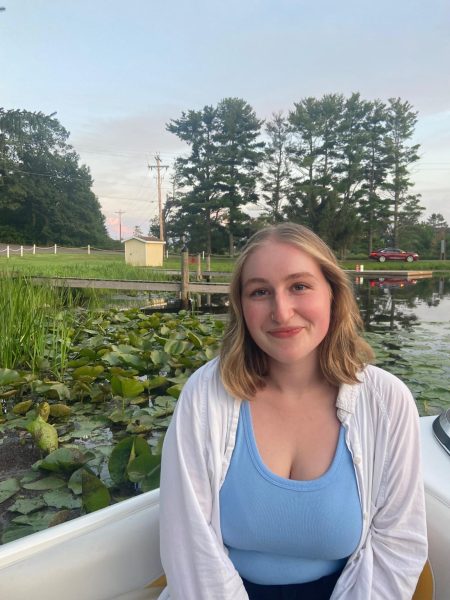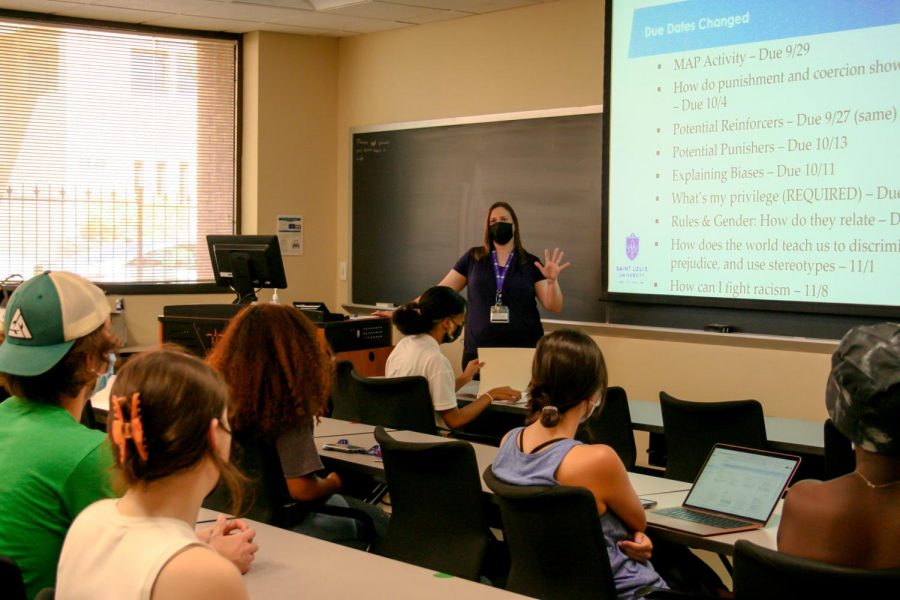Core Curriculum Pilot Launches
After nearly three years of planning, the University is piloting its newly developed Core Curriculum to approximately 270 freshmen students this semester. Previously, there was no cohesive curriculum that connected the different schools, leading to difficulty in transferring across programs and a lack of shared experience between students.
The Core, which is a minimum 32 credit hour experience, aims to foster collaboration and reflection to transform student learning. Associate Professor of English Ellen Crowell, Ph.D was appointed the Director of the University Core in May 2018 and has been working alongside a committee of other faculty, staff and students to develop the curriculum.
“The most exciting thing about this job was the ability to ask teachers to put aside what they have been doing and think creatively,” Crowell said. “In those early stages [we were] dreaming big and we built a lot of enthusiasm.”
This semester, two out of eight sections of the Core were launched: Ignite First Year Seminar, which uses a small-group approach to inquiry, and the first sequence of Cura Personalis, Self in Community, which focuses on self-discovery and questions of history or identity. Director of the Applied Behavior Analysis Program, Natalie Parks, Ph.D, is teaching the Behavior Analysis of Social Justice course for the Ignite Seminar requirement of the Core.
“My hope is that I will ignite some passion inside my students in whatever social justice topic that they’re interested in and give them a set of tools for how to start approaching that,” Parks said. “I [also] saw this as a great opportunity to introduce students to behavior science before their junior or senior year.”
Senior Antron Reid applied to become an Undergraduate Core Fellow last semester and began in his role in August. As a student representative for Cura Personalis 2: Self in Contemplation, he attends faculty meetings and helps approve, deny or edit course submissions for that section.
“In light of recent events that occurred on campus, I think this new Core is a way of integrating the idea of building up the whole person,” Reid said. “It will help us relate to each other a lot better and it’s going to reinforce [a] sense of community.”
Unlike other universities, Crowell explains that SLU is unique in involving students in the creation and review of core classes. This decision to create the University Undergraduate Core Committee (UUCC) came in large part out of the 2020 Scholar Strike, in which some students demanded they have a say in the development of courses.
“It makes you think, ‘Why haven’t we done this sooner?’” Reid said. “This education will be a lot more beneficial to students [when] they feel like they have a say in what they get to learn.”
Freshman Marquis Govan opted into the pilot program this semester to experience this new academic endeavor. He is taking two pilot courses, The Power of Communication and Cura Personalis 1.
“I haven’t had much homework in either of these classes so far because the emphasis is on developing the person and character,” Govan said. “The [Power of Communication] class I am taking has made me more well rounded in just a couple of weeks about how I can support and be more inclusive to people with disabilities.”
Crowell is looking forward to the implementation of the full Core next year and the impact it will have on individual students and on the campus as a whole.
“When we were creating the Core, we doubled down on student wellness,” Crowell said. “Cura Personalis, or care for the whole person, is the hallmark of Jesuit education. We said let’s make sure the Core lives SLU’s mission by making our Cura Personalis sequence both required for all students and credit-bearing.”
Your donation will support the student journalists of Saint Louis University.






